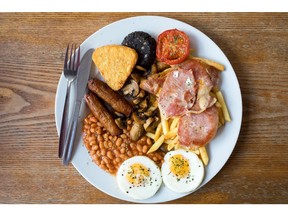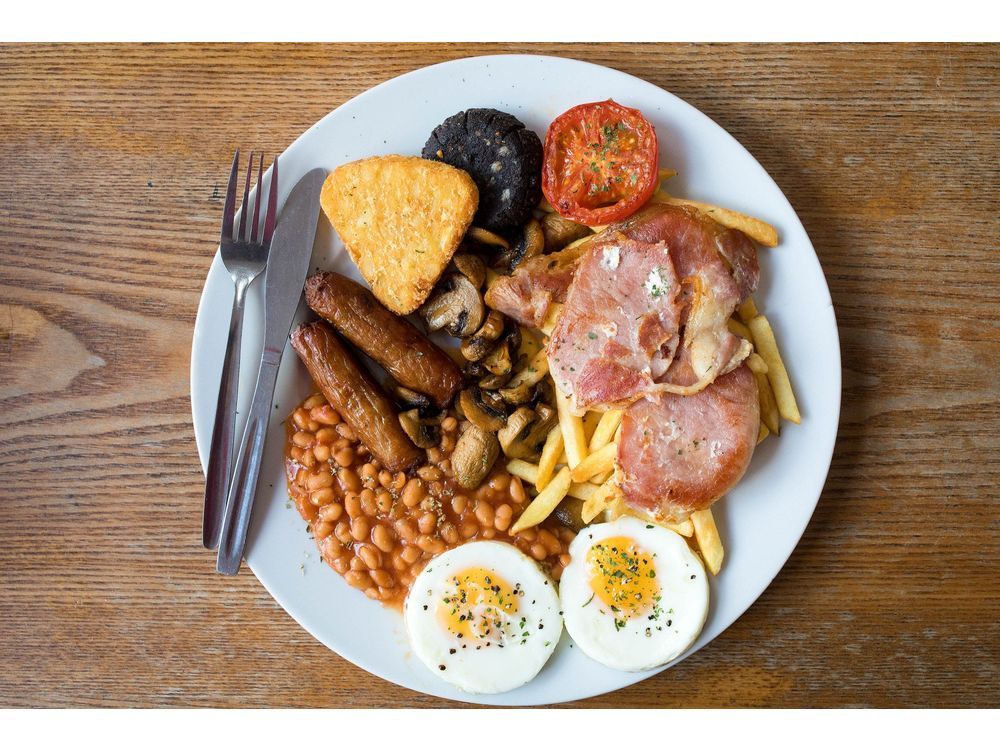[ad_1]
Britain is battling the worst inflation in decades, and surging grocery prices are pushing many people into food poverty for the first time in a generation.

Article content
(Bloomberg) — Britain is battling the worst inflation in decades, and surging grocery prices are pushing many people into food poverty for the first time in a generation.
Article content
As shelf prices rise alongside soaring fuel and energy bills, many households are struggling to make ends meet.
Bloomberg’s monthly Breakfast Index launching Friday aims to provide one insight into the cost-of-living crisis facing millions. Crunching various data from the Office for National Statistics, the index tracks the rising prices of some of the key ingredients in an English breakfast – sausages, bacon, eggs, bread, butter, tomatoes, mushrooms, milk, tea and coffee.
The first findings from the inaugural index are stark.
The average cost of ingredients — using standard pack sizes such as a dozen eggs and pint of milk — has jumped nearly 14.5% from a year ago, with an average increase of 2.8% in June alone. It costs £31.46 ($37.62) to buy all the products required, up from £27.92 in June 2021, the data show.
Article content
If baked beans, which are not separately tracked by the ONS, are included, the average basket price would be even higher. Tinned baked beans were recently at the heart of a high-profile spat between Tesco Plc and Kraft Heinz Co. with Britain’s biggest grocer stating it would not pass on “unjustifiable” price increases to shoppers.
Month-on-month the picture is not much better with prices of sausages, butter, milk and bacon all jumping by more than 5% since May. The increase in prices is helping to fuel a trend of shoppers buying fewer items and switching from branded goods to own-label products to save money.
“Consumers do appear to be doing switches within their baskets,” said Ocado Group Plc Chief Executive Officer Tim Steiner, giving the example of shoppers buying hamburgers rather than fillet steaks, or choosing plain tomato sauce rather than bolognaise. “It is challenging times and the cost-of-living crisis is hard on consumers.”
Britons Trade Fillet Steaks for Burgers as Living Costs Soar
Low-income families continue to be disproportionately affected by the inflation crisis. The latest Asda Income Tracker shows that 20% of UK households now have negative disposable income because their take-home pay no longer covers spending on essentials such as groceries, energy bills, transport costs, mortgage or rent.
“All this means that people will be feeling the pinch during our first restriction-free summer since 2019,” said Fraser McKevitt, head of retail and consumer insight at Kantar.
[ad_2]
Image and article originally from financialpost.com. Read the original article here.

